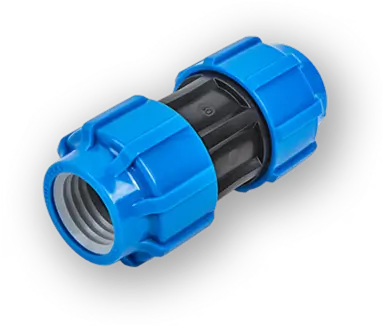Aug . 07, 2024 14:30 Back to list
Exploring the Various Applications of PVC Pipes in Construction and Infrastructure Projects
PVC Pipes Versatile Solutions for Modern Applications
Polyvinyl chloride, commonly known as PVC, has become a fundamental material in a variety of industries globally. Recognized for its durability, affordability, and versatility, PVC pipes are increasingly used in construction, plumbing, and agricultural applications. This article explores the diverse uses of PVC pipes, highlighting their advantages and significance across different sectors.
One of the most common applications of PVC pipes is in plumbing systems for residential and commercial buildings. PVC pipes are favored for water supply lines due to their corrosion resistance and longevity. Unlike metal pipes that can rust or degrade over time, PVC pipes are unaffected by common corrosive substances found in water. Additionally, they maintain their integrity in various environmental conditions, making them ideal for both hot and cold water distribution. Furthermore, their lightweight nature simplifies transportation and installation, reducing labor costs.
2. Drainage Systems
PVC pipes are extensively utilized in drainage systems, including sewer and stormwater applications. Their non-porous surface prevents the accumulation of debris and the growth of mold, ensuring a steady flow of waste. The smooth interior also facilitates easy cleaning and maintenance, reducing the risk of blockages. As urban areas continue to expand, effective drainage systems are crucial for managing stormwater and preventing flooding, so PVC pipes serve as a reliable solution for municipalities and private developers alike.
3. Electrical Conduits
china what are pvc pipes used for

In addition to plumbing, PVC pipes are widely used as conduits for electrical wiring. They provide excellent insulation against electrical currents, safeguarding against shorts and enhancing safety. PVC electrical conduits are also resistant to moisture and chemicals, ensuring that the wiring remains protected in various environments. Their flexibility allows for easy bending and installation, making them a practical choice for both residential and commercial electrical systems.
4. Agricultural Applications
The agricultural sector has benefited significantly from the use of PVC pipes. They are commonly employed in irrigation systems, where their durability and resistance to soil and chemicals help maintain water delivery over long distances. PVC pipes can efficiently convey water to crops, enhancing irrigation practices and promoting healthier crop yields. Additionally, they are often used in drainage solutions for farmland, allowing excess water to flow away and preventing waterlogging, which can harm crops.
5. Medical Applications
Surprisingly, PVC is also present in the medical field, where specialized PVC pipes are used for various applications, such as medical tubing, blood bags, and intravenous lines. PVC's ability to be sterilized and its compatibility with medical solutions make it a suitable material for healthcare purposes. Its availability in different sizes and flexibility allows for diverse medical applications, thereby improving patient care and medical outcomes.
Conclusion
The versatility of PVC pipes has made them an essential component in a myriad of applications, from plumbing and drainage to agriculture and medicine. Their resistance to corrosion, lightweight nature, and affordability enhance efficiency and safety, contributing to their widespread adoption across various industries. As technology continues to advance, the development of even more innovative uses for PVC pipes is likely, further solidifying their role in modern infrastructure and everyday life. As we strive to improve our systems and processes, incorporating PVC pipe solutions will undoubtedly play a crucial part in shaping a sustainable and efficient future.
-
High-Quality PVC Borehole Pipes Durable & Versatile Pipe Solutions
NewsJul.08,2025
-
High-Quality PVC Perforated Pipes for Efficient Drainage Leading Manufacturers & Factories
NewsJul.08,2025
-
High-Quality PVC Borehole Pipes Durable Pipe Solutions by Leading Manufacturer
NewsJul.08,2025
-
High-Quality PVC Borehole Pipes Reliable PVC Pipe Manufacturer Solutions
NewsJul.07,2025
-
High-Quality UPVC Drain Pipes Durable HDPE & Drain Pipe Solutions
NewsJul.07,2025
-
High-Quality Conduit Pipes & HDPE Conduit Fittings Manufacturer Reliable Factory Supply
NewsJul.06,2025

